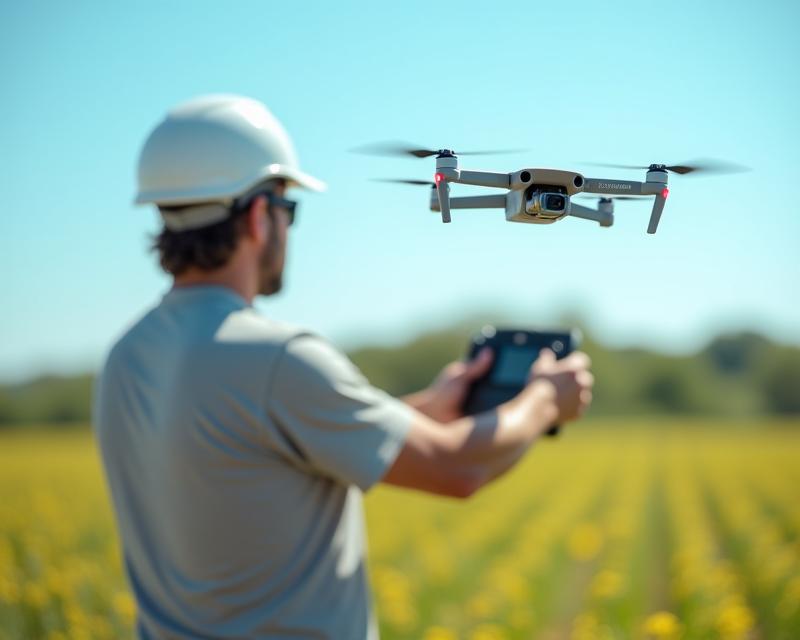Drone Safety: A Guide for Farmers
Publish in Sustainable Farming el 22/07/2025 16:25
Drone Safety: A Guide for Farmers
Agricultural drones are rapidly changing the way we farm, offering incredible benefits like crop monitoring, precision spraying, and livestock management. But with great power comes great responsibility! It's crucial to understand the safety precautions and best practices to ensure a successful and safe drone operation. This article will cover essential safety measures, focusing on pilot training and certification, to help you get the most out of your drone while minimizing risks.

Why Training and Certification Matter
Think of operating a drone like driving a vehicle – you need to be properly trained and licensed. Unregulated drone use can lead to accidents, property damage, and even legal trouble. Pilot training programs cover everything from understanding airspace regulations to safe flight procedures and emergency protocols. Certification demonstrates your competency and commitment to responsible drone operation. Many regions now *require* certification, so it's essential to check your local regulations before taking to the skies. Don't skip this step – it's an investment in your safety, your farm, and your community.
Essential Safety Precautions
Beyond formal training, several safety precautions are vital for every drone flight. Always conduct a pre-flight check to ensure your drone is in good working order – check battery levels, propellers, and camera functionality. Be aware of weather conditions; strong winds, rain, and extreme temperatures can significantly impact drone performance. Never fly near power lines, airports, or other sensitive areas. Maintain a visual line of sight with your drone at all times. And most importantly, respect privacy – avoid flying over neighboring properties without permission.
Best Practices for Safe Drone Use
Here are a few additional tips to keep in mind:
- Know the airspace rules: Use apps like B4UFLY to check for temporary flight restrictions.
- Maintain a safe distance from people and animals.
- Have a recovery plan in case of emergencies.
- Keep your drone software updated.
- Consider purchasing drone insurance.
By prioritizing safety and investing in proper training, you can harness the power of agricultural drones to improve your farm's efficiency and profitability while minimizing risks. Remember, responsible drone operation benefits everyone!





